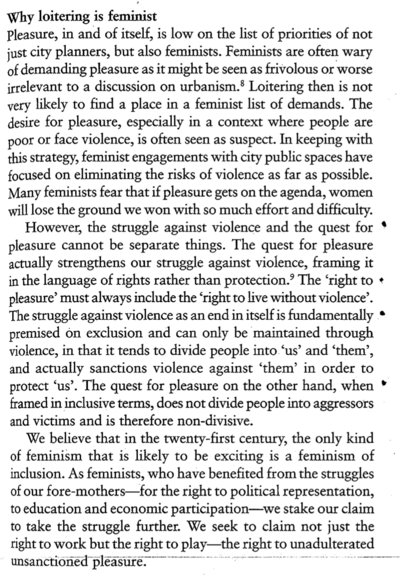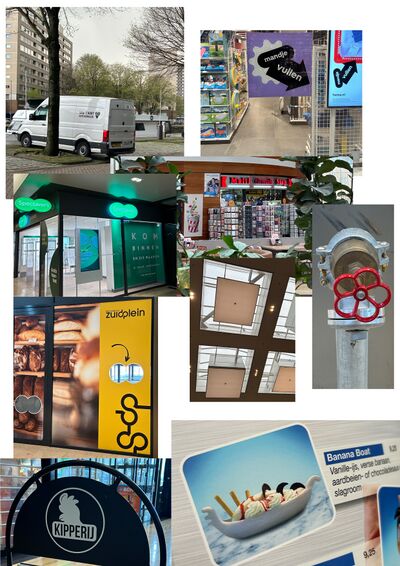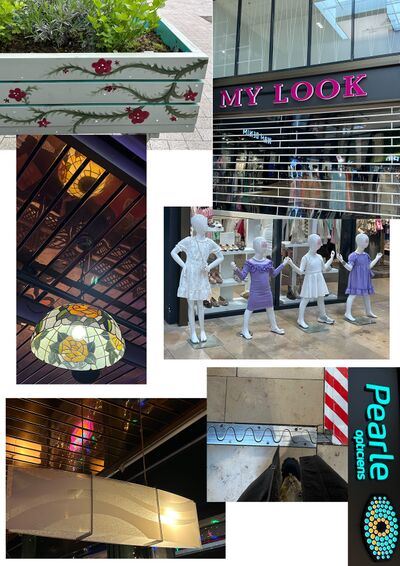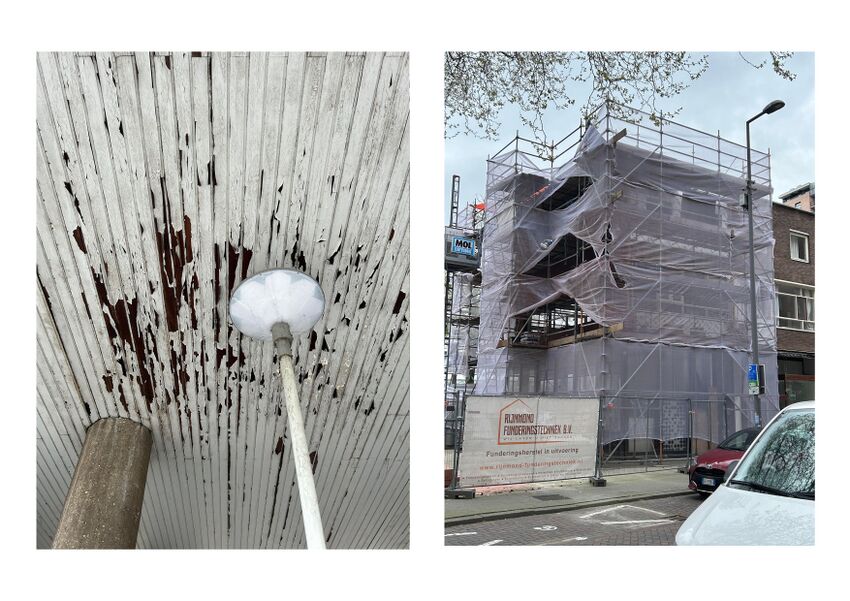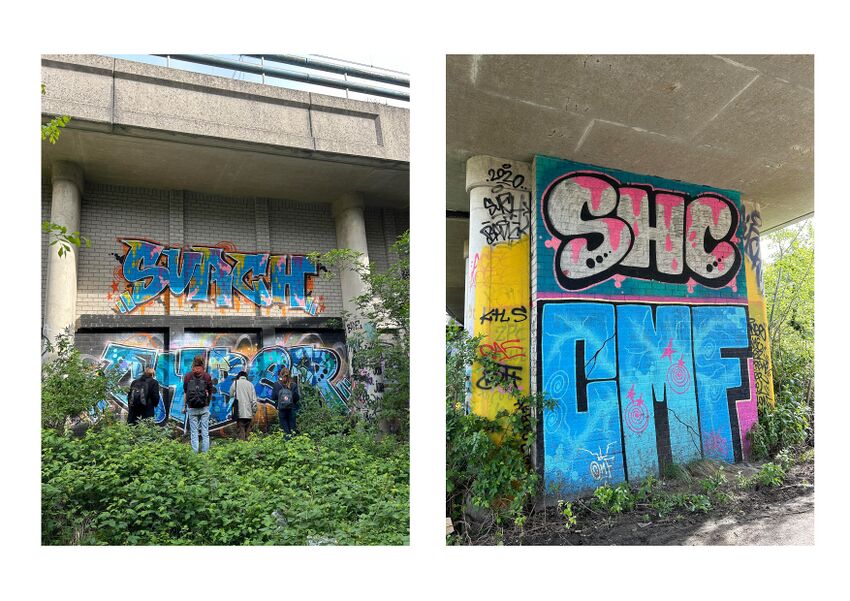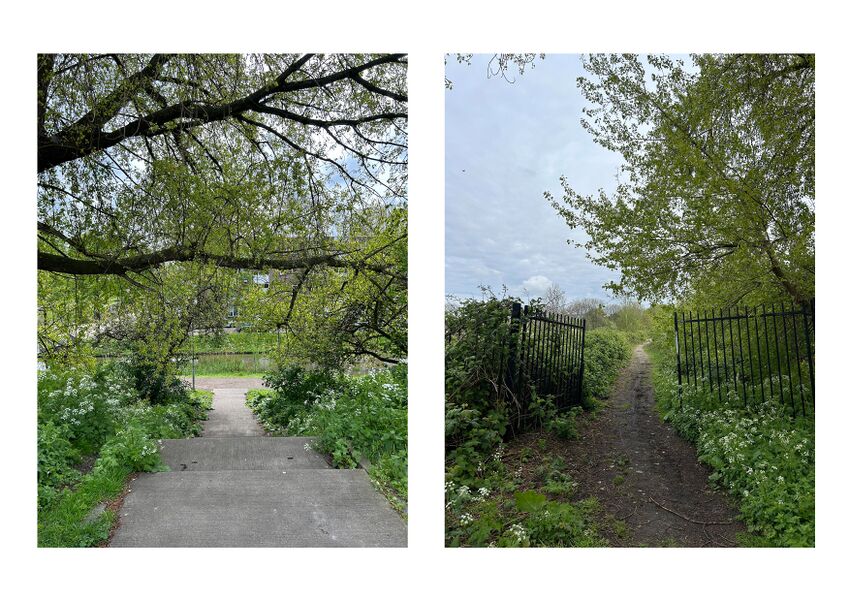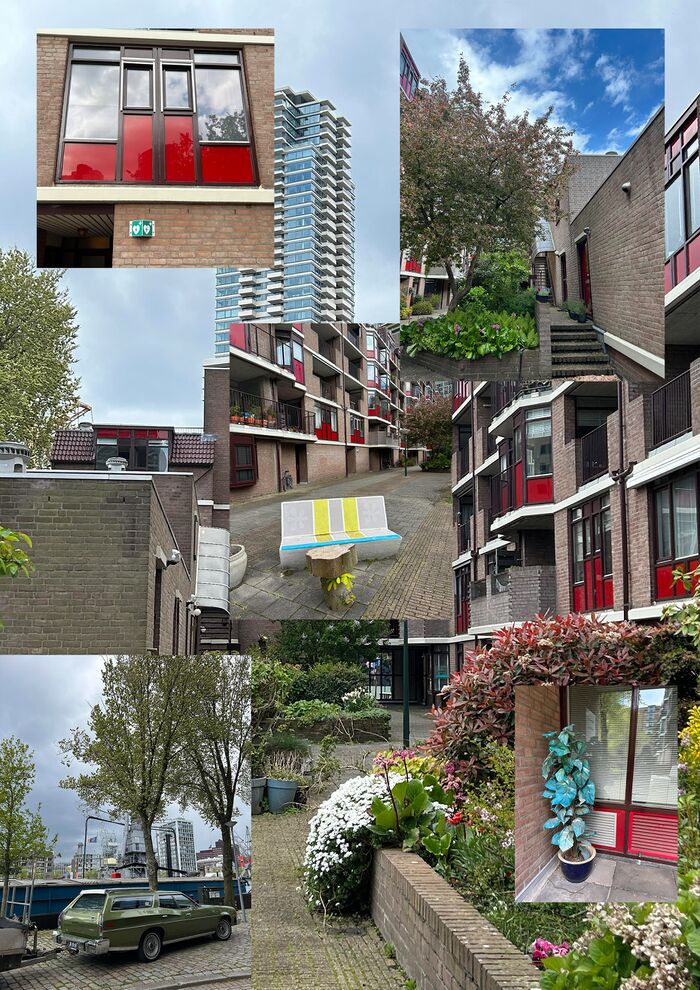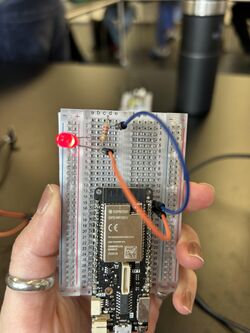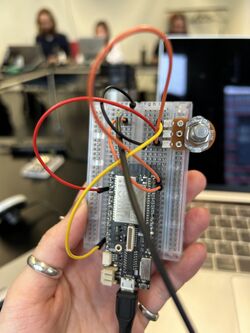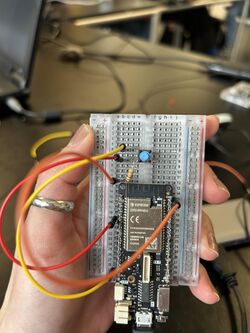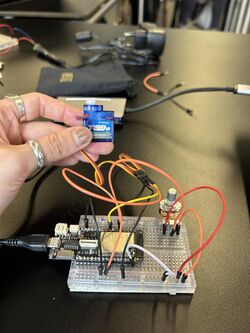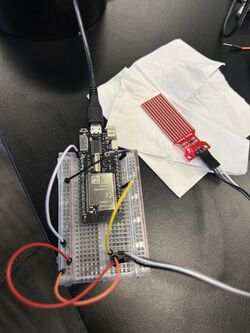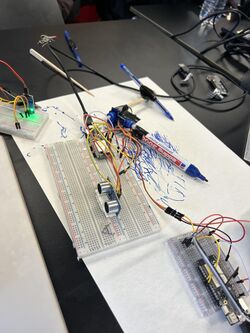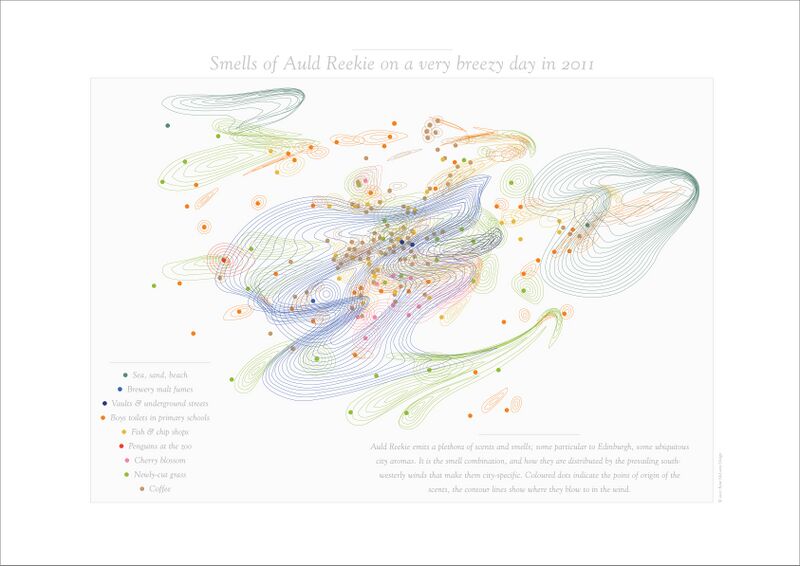User:Michel W/SPECIAL ISSUE🥀24: Difference between revisions
| Line 187: | Line 187: | ||
Apophenia is the tendency to perceive meaningful connections between unrelated things. | Apophenia is the tendency to perceive meaningful connections between unrelated things. | ||
The feeling of wonder and meaning associated with '''angel numbers''' can be explained by a perceptual error known as apophenia. Apophenia is the tendency to interpret random patterns as meaningful, even when there is no actual connection or significance. | |||
====Reference==== | ====Reference==== | ||
Revision as of 20:47, 5 May 2024
I.April
Special Issue🎶
❋ ON LOITERING and other forms of in-situ computation ❋
The joy of living in a city?
On April 15th, we were at the Zuidplein Public Library, conducting observations around the area. I stayed in the shopping mall with Wang and Victor, who were next to the library. I noticed I'm easily captivated by unique shapes and prints. It was a peaceful observation time as I sat on the bench and watched people walking around. After that, I lingered in the shopping mall for a while. Sometimes I feel insecure when people just stand around, which reminded me of the article we read in the first Monday class, "Why Loiter? Women and Risk on Mumbai Streets."
However, the struggle against violence and the quest for pleasure cannot be separate things. The quest for pleasure actually strengthens our struggle against violence, framing it in the language of right rather than protection. The 'right to pleasure' must always include 'the right to live without violence'.
❋
There are 3 lists I've made with two different methods to observe things.Shapes, patterns/prints. To me, I'm passionate about visualize things and create weird and wonderful combination thought this process :)
⭑Shapes:
- white rectangle blocks on the ceiling
- yellow double circle shape window on the door where you can see outside
- Black & white chicken head shape store sign
- Double circle of store sign with green light
- Strange shape banana boat plate and ice cream on a menu
- Flower shape button
- Black & white arrow store sign
⭑Patterns:
- Weird poses models, raising their hands that look like a line pattern
- The closing door - has horizontal and vertical line patterns
- The metal on the ground
- Optical store sign
⭑People wearing patterns, walking in the mall:
- A baby girl with grey and orange flowers pattern
- A woman with b&w check long coat
- A girl with b&w dots T shirt
- A grandma with flowers pattern print shirt
- A woman brings a leopard tote bag
- A flower patterns of lamp at Meeting point
- A zebra print with yellow light at Meeting point
- A girl wears blue and white stripe pants
- A person wears yellow snake skin pattern flare pants
Things I have connections with on the street near Blaak area: Lavender transparent fabric covered on the construction building and Wabi-Sabi aesthetic mottled ceiling.
❋ Apr.22 ❋
I. outside: Eixogen (location-based game) trail demo by Louisa
II. Trying others scripts and loitering:
⭑Prototype walk scripts:
T = Time
L = Linger,loitering
C = counting shapes/patterns
1 = turn right
2 = turn left
3 = go straight
M = relax
{
T = 15;
L = 3;
C = 5;
}
If (T < 15, C == 5, 1 + 1 + 3 = M) {
grab_a_nice_coffee
}
If (T=15, C == 8, 2 + 2 + 2 = M ) {
Find_a_quiet_place_to_sit
}
Else if (M == 3) {
go_home_and_sleep
}
Me and Zuzu found a tranquil trail when we were participating the Eixogen game at Rotterdam, Beukelsbrug / Van Nellefabriek bus stop.
Prototyping🎶
Experiment and play!
Methods🎶
❋SI24 Library❋
Project that May or May not be Made (PMoMM)
꧁Project(s) That May or May Not Be Made꧂
꧁Personal readers꧂
⭑Themes I am interested into (Feminism, queerness, body politics, cyborg, post-humanism, DIY, Feminist Avant-garde, Cyber feminism, craftivism.....etc.)
II.May
Special Issue⛸️
Dérive alone in Rotterdam? Visualization?
Psychogeography
Psychogeography, the study of the laws and precise effects of a consciously or unconsciously elaborated geographical environment acting directly on affective behavior, subsumes itself, according to Asger Jorn's definition, as the science fiction of urbanism.
Dérive
只要你想要,隨時都能夠迷失而找到屬於你自己的城市。
我們參與的所有事情裡面,不論是否有趣,不斷尋找新的生活方式是真正令人興奮的唯一事務。美學和其他領域都已經遠不足以達成此目的,我們可以完全忽略它們。因此我們應該描述某些臨時的觀察地帶,包括觀察某些街道上偶然的和可預期的過程。 居・德波,〈都市地理學批判導論〉(Guy Debord, “Introduction to a Critique of Urban Geography”),1955
在1956年的〈飄移理論〉(Théorie de la dérive)中,德波借用了超現實主義者的郊外遊蕩,但更深入探討其中的心理作用。他在其中指出「機遇沒有我們想得那麼重要:從飄移的眼光來看,城市有其心理地理學的輪廓,有其恆常的流動,固定的定點和漩渦,強烈阻饒人們進入或是走出某些區域。」因而「飄移」是一個建構性的操作,雖然包含了隨機的機遇,但是也包含了幾項規則:參與式的決定、基於心理地理地圖,以及穿越環境單元所必須經歷的分析。
⭑Smell Map⭑
The artist Kate McLean has been trying to address these and other questions for the past seven years with her Sensory Maps project. In 2010, she began looking for ways to map landscapes based on sensory input. The first of these maps related to smell. She collected comments about smell from people in different parts of Edinburgh, and transformed that into a visualization that had this amazing link to the environment, as smell often has to do with conditions like wind direction, rain, or changes in temperature.
McLean calls such a visualization a “smellmap", which made up of colored spots and concentric lines that look like galaxies, is a visual synthesis of the different experiences reported by smellwalkers.
Situationist International
簡單來說,「情境主義國際」是一個由前衛藝術家、知識份子與政治行動者所組成的左翼國際組織。「情境主義國際」於1957年在意大利的一個小鎮成立,之後於1972年解散,其中的核心人物包括居伊·德波(Guy Debord)、拉烏爾·范內格姆(Raoul Vaneigem)等等。 上承歐洲前衛藝術對於日常生活的思考,「情境主義國際」認為現代資本主義的政治與經濟制度早已把現代社會轉變成為消費主導的「景觀社會」(The Society of Spectacle)。所謂「景觀社會」,就是一個日常生活逐漸被表象(例如大眾媒體上的影像)所取代的社會。值得注意的是,「景觀社會」的重點不在於影像的堆積,而是在於「以影像為中介的人之間的社會關係。」
面對「日常生活的異化」,「情境主義國際」主張「日常生活的革命」,方法是透過「心理-地理學」(Psycho-geography)對於都市環境對人們所構成的(心理)影響的了解,再以「漂移」(Dérive)或「異軌」(Détournement)的方式,建構異於日常生活的規範、具有文化革命潛力的存在情境。若果以廿一世紀的文化行動來說明。
情境主義者( situationists )的基本實踐之一是漂移( dérive )【字面意義:漂流】,一種穿過各種各樣周圍環境的快速旅行的方法或技巧。漂移包括幽默嬉戲的建構行為和心理地理學( psychogeographical )的感受意識,因此,是完全不同於經典的旅遊或散步概念的。
Apophenia
Apophenia is the tendency to perceive meaningful connections between unrelated things.
The feeling of wonder and meaning associated with angel numbers can be explained by a perceptual error known as apophenia. Apophenia is the tendency to interpret random patterns as meaningful, even when there is no actual connection or significance.
Reference
Attempt at a Psychogeographical Description of Les Halles - Abdelhafid Khatib
Learning About Cities by Mapping Their Smells

